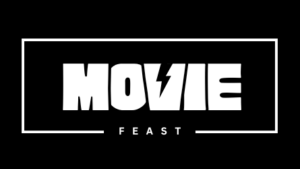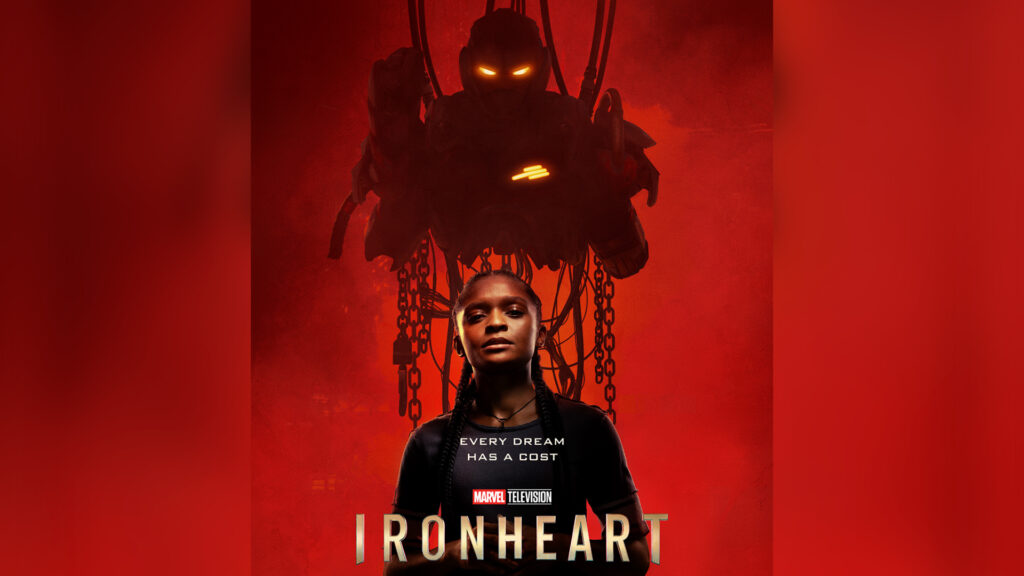The Ironheart review reveals why this 2025 Marvel series delivers both technological wonder and emotional depth. Chinaka Hodge’s thoughtful direction brings genuine heart to the superhero genre while honoring Riri Williams’ brilliant legacy.
What happens when you combine cutting-edge technology with the raw determination of a teenage genius? You get superhero storytelling at its finest. Ironheart (2025), created by Chinaka Hodge, stands as one of the most compelling character-driven entries in the Marvel Cinematic Universe. This six-episode miniseries follows MIT student Riri Williams as she returns home to Chicago and becomes entangled with mysterious forces that pit her advanced technology against ancient magic. While the series operates within familiar MCU territory, it succeeds because it never loses sight of its protagonist’s humanity—every moment of heroism feels genuinely earned rather than manufactured.
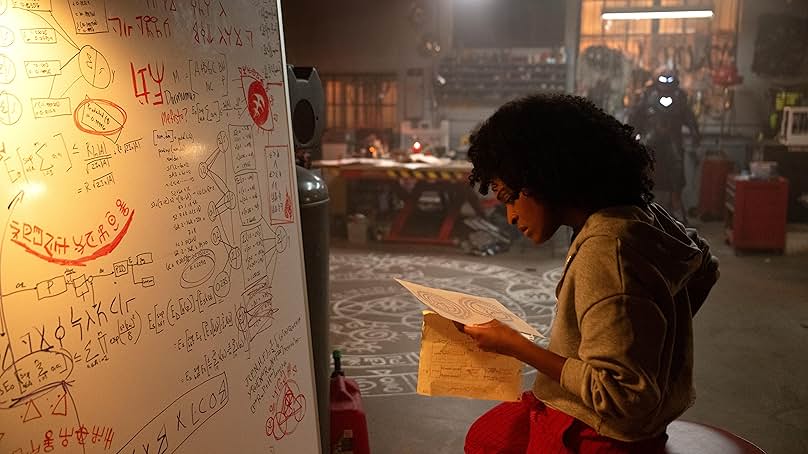
Synopsis
Following the events of Black Panther: Wakanda Forever, genius inventor Riri Williams (Dominique Thorne) returns to her hometown of Chicago with plans to continue developing her revolutionary armor technology. However, her homecoming becomes complicated when she encounters Parker Robbins, also known as The Hood (Anthony Ramos), a charismatic figure with connections to supernatural forces that threaten everything Riri holds dear.
As Riri navigates family expectations, academic pressures, and the responsibility of wielding technology that could change the world, she discovers that her neighborhood harbors secrets that stretch back generations. With the help of her best friend Natalie (Lyric Ross) and guidance from unexpected allies, Riri must learn to balance her scientific genius with the mystical forces she never believed existed.
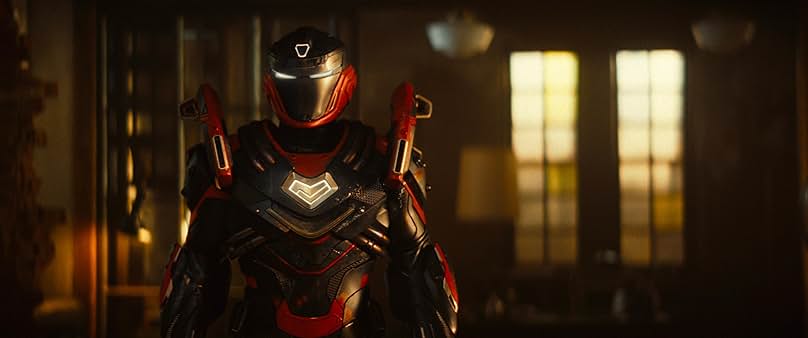
Plot & Themes
Ironheart operates on a deceptively layered premise: sometimes the most advanced technology must coexist with the oldest forms of power. The technology-versus-magic conflict serves as a framework for exploring deeper themes about community, responsibility, and the price of genius in a world that often fails to nurture young Black brilliance.
The series’ genius lies in its commitment to authentic character development. When Riri struggles with the weight of her capabilities, the show never reduces her conflicts to simple superhero angst. These moments work because Hodge approaches them with genuine understanding of the pressures facing gifted young people, particularly those from underserved communities.
Thematically, the series celebrates intelligence while acknowledging the isolation it can create. Riri’s journey isn’t just about building better armor—it’s about learning to connect with others despite the barriers her exceptional abilities create.
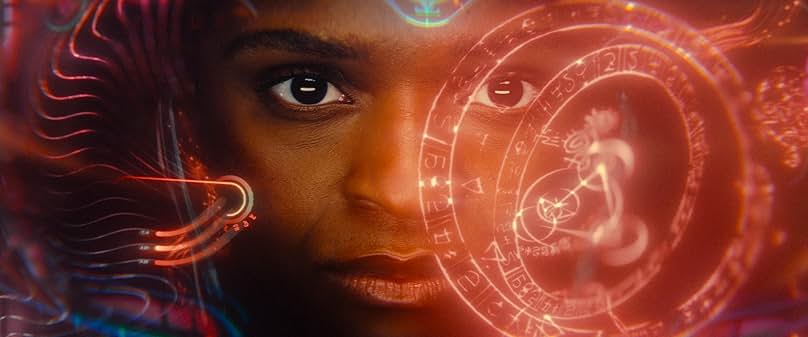
Cinematography & Visuals
The series captures both the gritty reality of Chicago neighborhoods and the spectacular beauty of advanced technology with visual techniques that serve the story perfectly. The cinematography emphasizes the contrast between Riri’s high-tech world and the mystical forces she encounters, creating a visual language that makes both elements feel equally authentic.
The show excels in action sequences that showcase Riri’s engineering prowess. The armor sequences demonstrate excellent practical effects work combined with seamless CGI integration. The camera work during flight scenes captures the exhilaration of powered flight while maintaining focus on character moments.
Chicago itself becomes a character through careful location shooting. The series presents the city as both beautiful and challenging, avoiding stereotypes while acknowledging real social issues that affect Riri’s community.
Acting & Characters
Dominique Thorne delivers a star-making performance as Riri Williams that transforms her from promising newcomer to genuine leading presence. Her portrayal balances intellectual confidence with emotional vulnerability, creating a character who feels both extraordinary and relatable. Thorne’s chemistry with her supporting cast makes every relationship feel authentic and earned.
Anthony Ramos brings complexity to Parker Robbins, avoiding the trap of one-dimensional villainy. His performance suggests depths of motivation that make his conflict with Riri genuinely compelling rather than simply adversarial.
Lyric Ross provides excellent support as Natalie, grounding the series’ more fantastical elements through her portrayal of loyal friendship. Her scenes with Thorne crackle with authentic rapport that makes their bond feel lived-in and real.
The supporting cast, including veteran actors who bring weight to family dynamics, creates a community around Riri that feels genuine rather than constructed for plot convenience.
Direction & Writing
Chinaka Hodge’s direction maintains perfect balance between intimate character moments and spectacular superhero action throughout the series’ six episodes. Coming from her acclaimed work on diverse storytelling projects, Hodge understood that superhero narratives require emotional authenticity to transcend genre expectations.
The writing approach layers themes at multiple levels:
- Character development that explores genius and isolation with nuance
- Community dynamics that feel authentic to Chicago’s South Side
- Supernatural elements that enhance rather than overwhelm the technological focus
- Cultural specificity that adds depth without feeling tokenistic
The series’ structure follows superhero origin conventions while subverting them through genuine character growth. This creates familiarity that makes the unexpected emotional moments resonate more powerfully.
Sound & Music
The musical score perfectly blends contemporary urban sounds with technological themes and mystical elements. The soundtrack captures both the energy of Chicago’s music scene and the wonder of advanced technology, creating an audio landscape that supports the series’ unique tone.
Sound design plays a crucial role in establishing the armor’s capabilities. The mechanical sounds of Riri’s suits feel both futuristic and grounded, creating audio signatures that make each technological breakthrough feel tangible and exciting.
The use of silence during key emotional moments allows the performances to breathe, particularly during family scenes where Riri grapples with the implications of her abilities.
Conclusion & Verdict
Ironheart succeeds because it treats its protagonist as a complete person rather than just a superhero in training. Every element—from writing to performance to visual effects—works in service of character development without sacrificing the spectacle audiences expect from Marvel productions.
Strengths:
- Dominique Thorne’s powerhouse lead performance that anchors every episode
- Thoughtful exploration of genius, community, and responsibility
- Excellent integration of technology and magic as competing worldviews
- Strong supporting cast that creates authentic relationship dynamics
Minor Weaknesses:
- Some pacing issues in middle episodes slow narrative momentum
- Occasional exposition-heavy dialogue to explain mystical elements
This series remains essential viewing for Marvel fans and anyone interested in character-driven superhero storytelling. Ironheart works for audiences who enjoyed Ms. Marvel, Spider-Man: Homecoming, or Black Panther: Wakanda Forever.
Rating: 8.5/10
Creator: Chinaka Hodge
TV Rating: TV-14
Starring: Dominique Thorne, Anthony Ramos, Lyric Ross, Matthew Elam
For more Marvel series reviews, check out our analysis of other Phase Five productions. You can also explore the show’s technical achievements at the Internet Movie Database.
